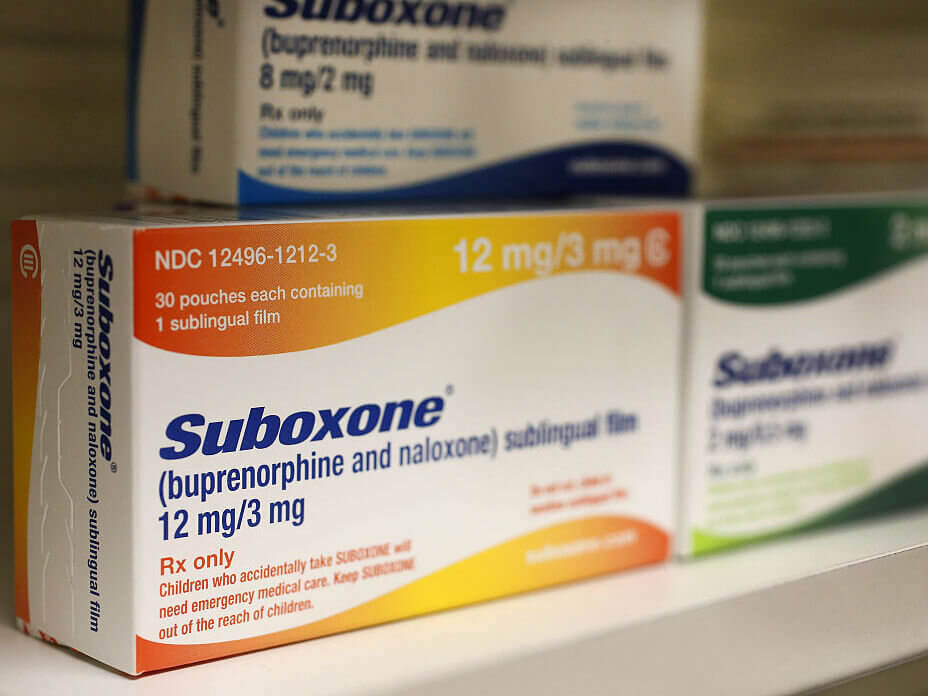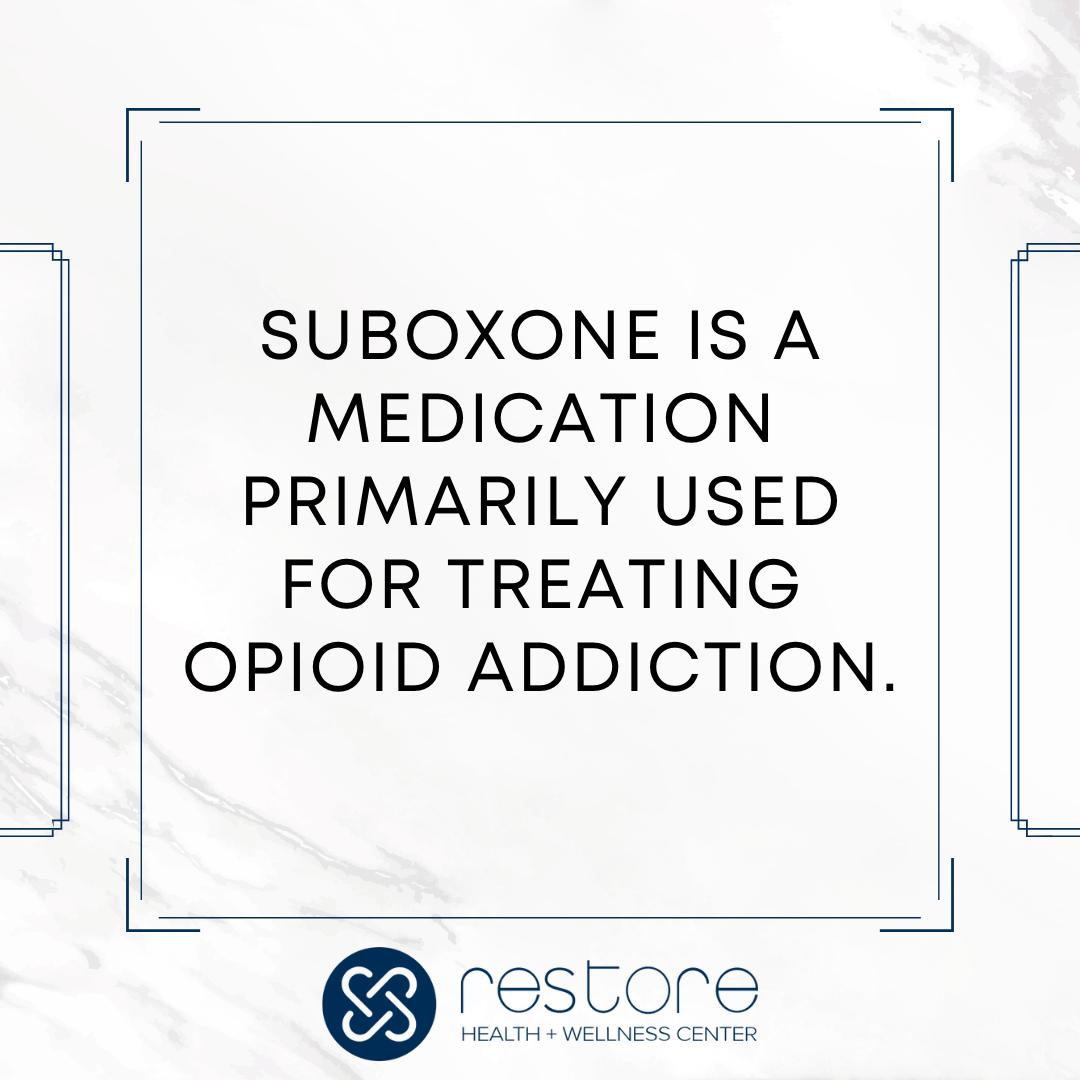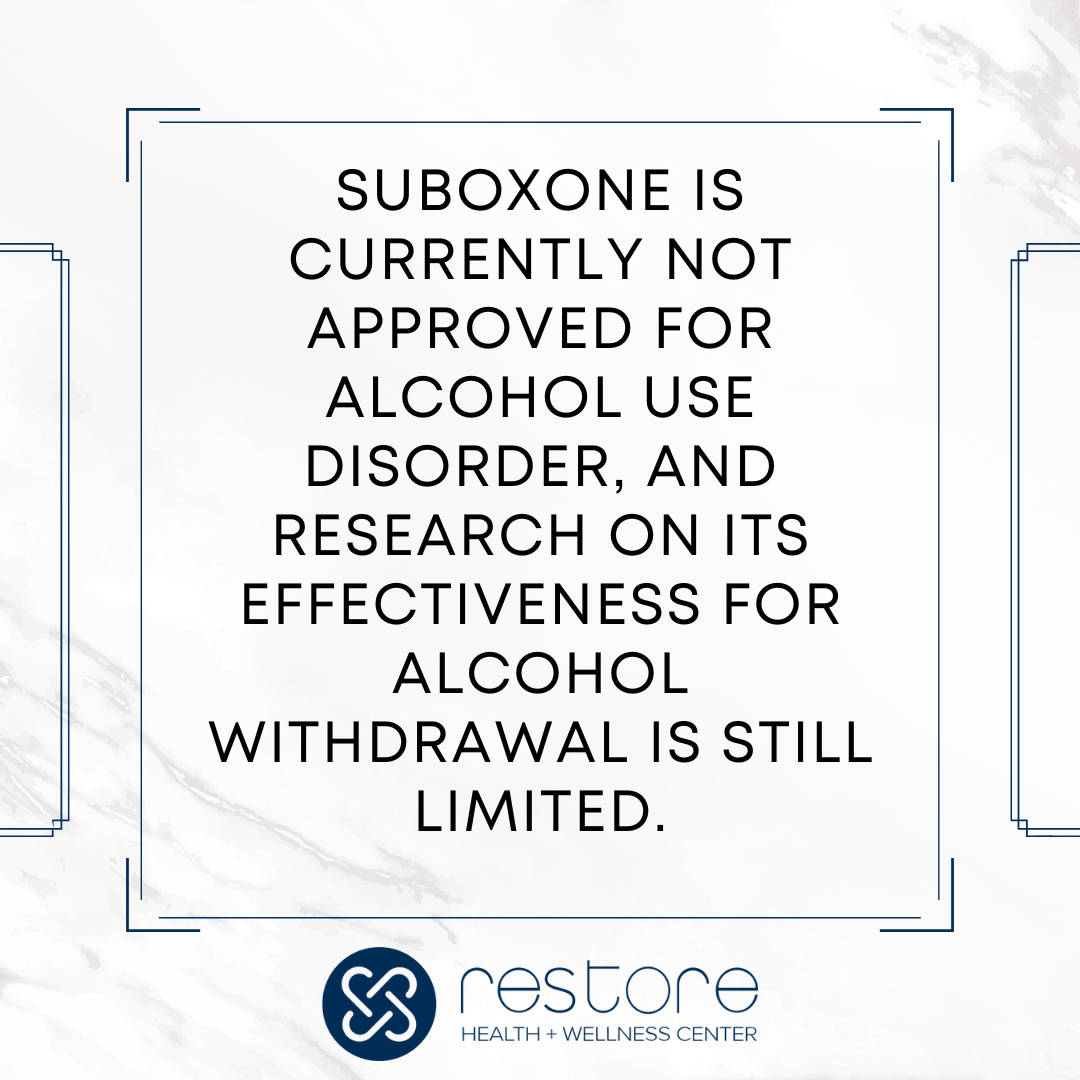
For those struggling with alcohol addiction, especially after trying other treatments without success, finding a new option can feel like a lifeline. Suboxone, a medication typically used to treat opioid addiction, is now being considered for its potential to help with alcohol addiction as well.
But can it really work for something outside its original purpose? Let’s explore how Suboxone works and whether it could be a promising option for alcohol use disorder.

What is Suboxone?
Suboxone is a medication primarily used for treating opioid addiction. It combines two drugs: buprenorphine, a partial opioid agonist, and naloxone, an opioid antagonist. The medication comes in a dissolvable film that is placed under the tongue or in the cheek for easy administration. Approved by the U.S. Food and Drug Administration (FDA), Suboxone helps individuals manage opioid withdrawal and cravings.
You should take note that suboxone can be addictive if not used as directed, making medical supervision crucial. If you’ve become dependent on this drug, there are ways to get off it safely.
How Does Suboxone Work?
Buprenorphine, as a partial opioid agonist, activates opioid receptors in the brain but produces weaker effects than full opioids like heroin or oxycodone. This helps reduce cravings and withdrawal symptoms without delivering the same high, making it easier to stop using opioids.
Buprenorphine also binds strongly to opioid receptors, blocking other opioids from activating them, which can deter misuse. Additionally, there’s a limit to how much buprenorphine can activate the receptors, reducing the risk of overdose and respiratory depression.
Naloxone, the second component, is an opioid antagonist that prevents misuse. If Suboxone is tampered with and injected or inhaled, naloxone will cause immediate withdrawal symptoms, discouraging misuse.
While Suboxone is effective for managing opioid addiction, it is most successful when combined with a comprehensive treatment plan that includes behavioral therapy and support for co-occurring mental health issues like anxiety or depression.
For those seeking help, Los Angeles centers for alcohol and drug abuse offer comprehensive treatment options that incorporate medications like Suboxone to support recovery.

Can Suboxone Treat Alcohol Addiction?
While it is primarily used to manage opioid cravings and withdrawal, there has been interest in whether it could also be effective for treating alcohol addiction. However, Suboxone is not currently approved for alcohol use disorder, and research on its effectiveness for alcohol withdrawal is still limited.
Alcohol addiction and alcohol withdrawal present unique challenges, often requiring different medications and treatment approaches than opioid addiction. Medications like naltrexone and disulfiram are more commonly used to treat alcohol dependence.
If you’re seeking help for alcohol addiction, many comprehensive programs in Los Angeles offer personalized care, including medically-supervised detox and therapies designed to manage alcohol withdrawal and promote long-term recovery.
It’s essential to speak with a healthcare professional to determine the most appropriate treatment plan for your specific needs.

FDA-Approved Medications for Alcohol Use Disorder
- Naltrexone
Naltrexone, while similar to naloxone in its ability to block opioid receptors, works differently when it comes to alcohol. It reduces alcohol cravings by blocking the euphoric effects that alcohol can produce. This makes drinking less rewarding, helping to curb the desire to consume alcohol. Unlike naloxone, which is used to reverse opioid overdoses, naltrexone is taken regularly to manage alcohol use disorder by diminishing the urge to drink. - Acamprosate
Acamprosate helps people maintain long-term recovery by reducing the brain’s dependence on alcohol. Alcohol can cause imbalances in brain chemicals, which lead to cravings and discomfort during recovery. Acamprosate works by restoring this chemical balance, which helps reduce cravings and the brain’s reliance on alcohol. - Disulfiram (Antabuse)
Disulfiram creates a deterrent for alcohol consumption by causing unpleasant physical reactions when alcohol is ingested. These reactions, which include nausea, headaches, and flushing, serve as a strong deterrent to drinking, as the body reacts negatively to the presence of alcohol. Disulfiram doesn’t reduce cravings but works by discouraging individuals from drinking due to the immediate, unpleasant effects.

Why Do You Need the Help of Los Angeles Detox Facilities?
Alcohol acts as a central nervous system depressant, suppressing brain activity over time. When someone dependent on alcohol quits, the brain cells that were previously inhibited become hyperactive, leading to withdrawal symptoms. These symptoms can begin within about six hours of the last drink and may include:
- Nausea
- Anxiety
- Hallucinations
- Agitation
- Sweating
- Shaking
- Seizures
Given the potential severity of these symptoms, quitting alcohol “cold turkey” without medical supervision can be dangerous. It’s essential for those dependent on alcohol to seek help through a medical detox program, where symptoms can be safely managed.
While medications like Suboxone are not approved for alcohol use disorder, there are effective, FDA-approved options like naltrexone, acamprosate, and disulfiram that can support recovery. Alcohol withdrawal can be dangerous, and attempting to quit without proper medical care increases the risk of severe symptoms.
At Restore Health and Wellness Center, a leading Rehabilitation Center in Los Angeles, we offer compassionate treatment programs tailored to your needs. Reach out today and take the first, most important step toward recovery.












